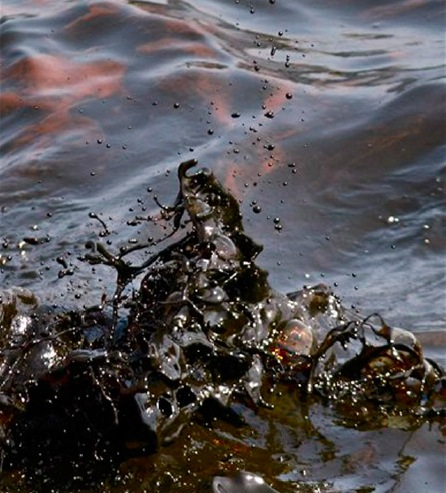It’s all the same water
It’s all the same water
Penny Hooper and Richard Fireman, both with the Council’s NC Interfaith Power & Light program, have collaborated to write a powerful op-ed on coal ash which has just appeared in […]
These stories are brought to you by NCIPL...
By George Reed, Former Executive Director
by George Reed, Former Executive Director
By Aleta Payne, Former Deputy Executive Director
by Aleta Payne, Former Deputy Executive Director
By Rose Gurkin, Former Program Associate for Administration
by Rose Gurkin, Former Program Associate for Administration
The Seminar “Loving God’s Creation: Fully Integrating Creation Care with the Church’s Mission and Ministry” is set for Thursday, October 14, 2010, at the Congregational United Church of Christ in Greensboro, NC. The program for this event has been announced.
By Rose Gurkin, Former Program Associate for Administration
by Rose Gurkin, Former Program Associate for Administration
By Rose Gurkin, Former Program Associate for Administration
by Rose Gurkin, Former Program Associate for Administration
By George Reed, Former Executive Director
by George Reed, Former Executive Director
Certainly the BP spill has heightened concern about the environment, but that concern was already growing among many people of faith. It’s an area the Council has been working on for […]
By Rose Gurkin, Former Program Associate for Administration
by Rose Gurkin, Former Program Associate for Administration
By chris
by chris
What: Critical Issues Conference 2010: Climate Change & Faith
When: October 14
Where: Congregational UCC (400 W. Radiance Dr., Greensboro)
Why: Come learn about climate change and how congregations can make a difference.
By chris
by chris

Unfortunately, the childhood obesity epidemic is drastically affecting North Carolina. In 2009, North Carolina ranked 14th worst in the nation in childhood overweight and obesity for children ages 10-17, with more than one-third (33.5%) of our children being overweight or obese.
Also in this Raleigh Report: Domestic Violence, Environment, Gambling, Health, Housing, People with Disabilities, Public Education, and more.
By chris
Raleigh News & Observer
When hurricanes or earthquakes hit, religious congregations know how to respond with acts of good will and charity. But what about an oil spill?Many Triangle congregations are finding their voice.
Tonight two churches will hold vigils to pray and reflect on the BP oil rig disaster. On Sunday, the two-month anniversary of the oil spill, many Christians will attempt a daylong fast from oil in whatever way they find appropriate.
By chris
by chris

Rev. Nancy Petty, Pullen Memorial Baptist Church (Raleigh)
It’s an image I can’t get out of my mind: a rescuer washing goo off a pelican. The bird was found alive but coated in the oil slick making its way ashore along the Louisiana coastline. The rescuer, volunteering hours of her time, was gently and compassionately bathing the bird in hopes of giving it another chance in the wild. It is a sad but hopeful image from the Gulf of Mexico. And of all the images I have seen from this, the worst oil spill disaster our country has ever experienced, it is this one that causes me to reach for the remote as fast as I can to change the channel.By chris
by chris
The summer’s “short session” of the North Carolina General Assembly convened on May 12, a continuation of the 2009 session. Its primary task will be to adjust the 2010-11 budget adopted last year, though it can also take up bills that made it through one house last year, bills coming from study commissions, and bills amending the state Constitution.
By chris
by chris

A Litany of Lament Over a Despoiled Ocean
Ken Sehested, pastor, Alliance-affiliated
Circle of Mercy, Asheville, N.C.
In the beginning, darkness covered the face of the deep.
Then the Breath of Heaven swept across the waters, blessing the sea with all manner of creatures.
The sea knows its Maker and roars its applause; the fish therein leap at the sound of God’s voice.
Through the baptismal waters of the Red Sea did the Israelites escape their tormentors and emerge to freedom’s demand.
By North Carolina Council of Churches
by North Carolina Council of Churches
Like the patriarch Noah, humanity stands responsible for ensuring that all nature continues to thrive as God intended. Men and women are charged with preserving the beauty, diversity and integrity of nature as well as fostering productivity. Stewardship requires careful protection of the environment and calls us to use our intelligence to discover earth’s productive potential. We believe that stewardship of God’s creation is a moral responsibility that affects the lives of all, especially the poor and vulnerable. As people of faith, as individuals, as institutions, as a nation, we must commit ourselves to preserving and protecting the planet for generations to come.
By chris
by chris

Ellen Davis, Duke Divinity School (Durham)
Reading the Bible is my line of work, yet for years I read past the first chapter’s detailed attention to the food supply, as have my fellow biblical scholars. I now realize that my profession’s obliviousness about food in the Bible points to a deep and worrisome difference between a modern cultural mindset and the culture that all the biblical writers represent. The difference comes down to this: for them, eating and agriculture have to do with God, and for us they do not.By chris
by chris

Rev. Nancy Petty, Pullen Memorial Baptist Church (Raleigh)
While in Oxford I attended a worship service in which the bishop began his sermon with the words, “Most of you know that I usually don’t stick to the scripture when I preach. However, today will be different.” Immediately, he had my attention. I thought, “Is that an option, to not stick to the scripture?” At least in my mind-and I am aware that you might have a different opinion-I always try to stick to the scripture. I do so, mainly, because I love exploring the stories of our faith, but also because I think that is what I am supposed to do. But now this bishop had given me something new to think about.By chris
by chris

Rev. Steven Shoemaker, Myers Park Baptist Church (Charlotte)
What would I want to say to my son or daughter on Earth Sunday? I would begin by saying that the form of Christianity that bequeathed to me so much grace, truth and faith failed me in my relationship with God’s creation. We were so fixed on saving souls that it was as if the physical world around me were an afterthought of God and therefore an afterthought of Christian concern.By North Carolina Council of Churches
by North Carolina Council of Churches
As people of faith we proclaim our belief that our world is God’s creation, that God sees it as good, and that it is ours to protect and maintain. We also recognize that the quality of life for all of us depends upon its health and well-being. Yet today air and water pollution, desertification, loss of species and climate change are increasing at an alarming rate. God’s creation is threatened by serious, complex and interrelated problems that are the result of human behavior.
By North Carolina Council of Churches
by North Carolina Council of Churches
In less than ten years, North Carolina’s national rank in hog production has catapulted from sixth to second. This rapid growth has been stimulated by the opening, in 1991, of the world’s largest hog slaughterhouse, located in Bladen County. Much of the growth in hog production is concentrated in the five surrounding counties. In the raising, butchering, processing, transporting and marketing of hogs, a livelihood has been provided for thousands of persons, and additional nutritious meat products have become available for the people of our nation and abroad. However, when the slaughterhouse began operating, the state was unprepared for this exponential growth and lacked a regulatory program for factory farms. Counties could not direct the growth since a 1991 amendment to state zoning law prohibited counties from exercising their zoning authority over factory farms.
By North Carolina Council of Churches
by North Carolina Council of Churches
North Carolina’s state government is engaged in a debate that is occurring nationwide: should we restructure our electric utilities? This is an extraordinarily complex issue which will affect the daily lives of many people across the state, yet is almost completely unknown outside the halls of the General Assembly.
Understanding this issue, even in the broadest of terms, requires a step backward to look at the big picture of electric power and how we receive it. Currently, electric utilities are monopolies. There is only a single company from whom you can purchase your power, and it controls the entire process of producing and providing electricity. The rates charged are controlled by the government, ensuring that the utilities earn a reasonable profit without taking advantage of their position to overcharge customers.
NC Council of Churches
27 Horne St.
Raleigh, NC 27607
(919) 828-6501
info@ncchurches.org
